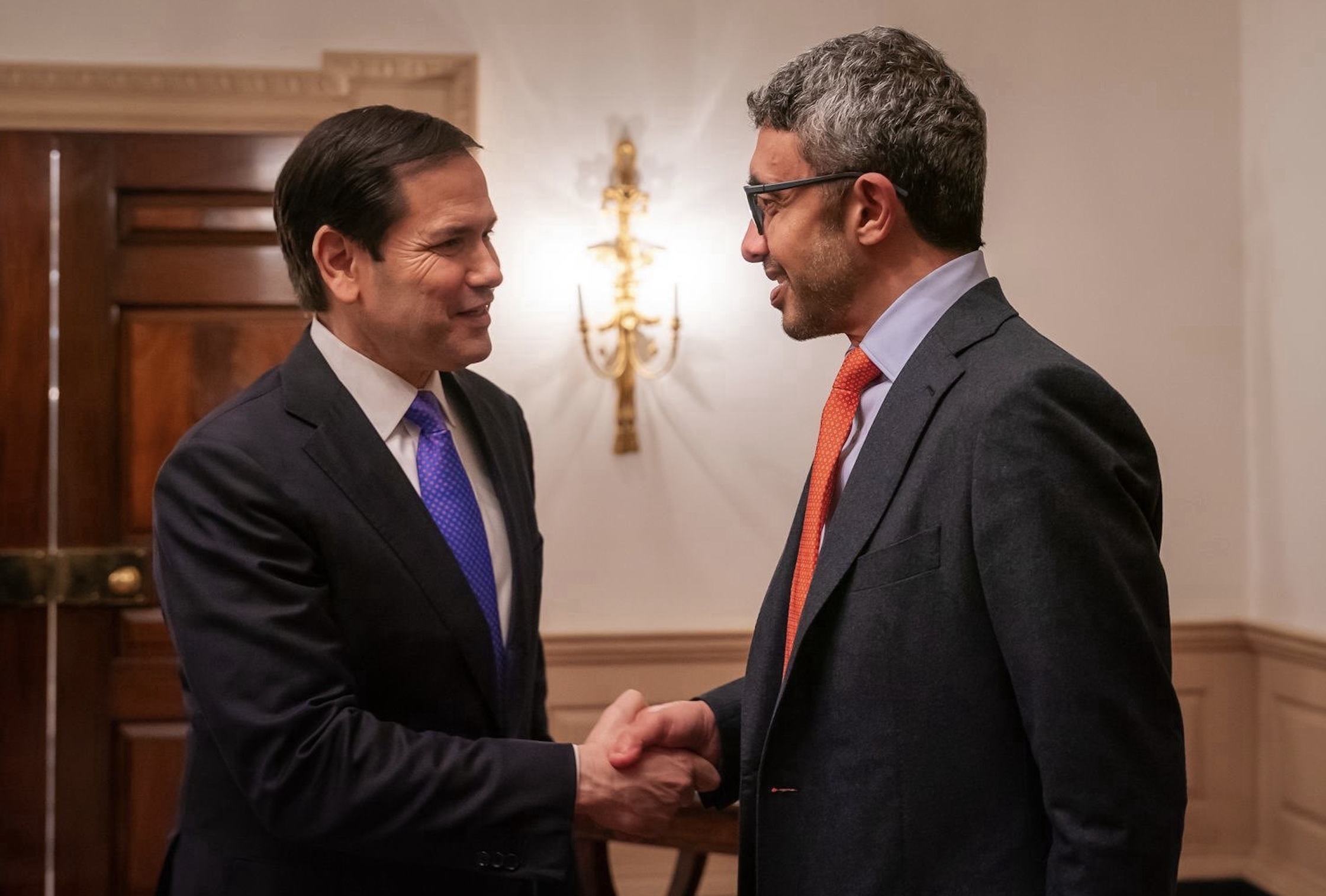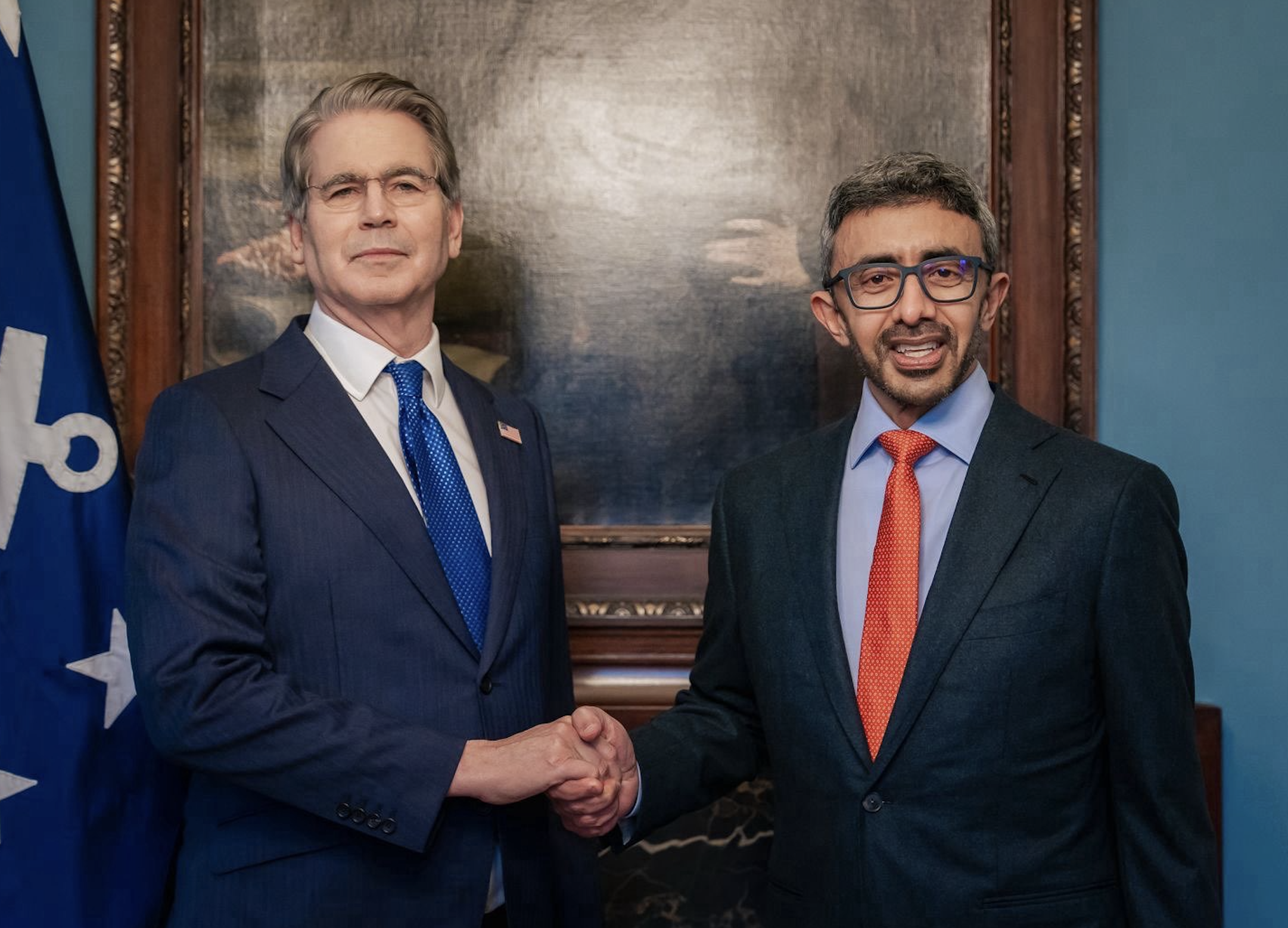
New US-UAE initiative combats climate change through increased agricultural innovation
April 23, 2021
ABU DHABI, April 23, 2021 (WAM) - The United Arab Emirates and the United States, with support from the United Kingdom, Brazil, Denmark, Israel, Singapore, Australia and Uruguay, today announce the Agriculture Innovation Mission for Climate (AIM for Climate) at President Biden’s Leaders Summit on Climate today. The initiative aims to increase and accelerate global agricultural innovation and research and development (R&D) over the next five years, to address climate change.
The Initiative was unveiled during remarks made by His Highness Sheikh Mohammed bin Rashid Al Maktoum, Vice President, Prime Minister and Ruler of Dubai, and Ruler of Dubai during the second day of the Leaders Summit on Climate and leverages international cooperation on a vital challenge of global significance.
The world’s growing population is increasingly dependent on vulnerable food production as climate change’s heat, weather, and seasonality impacts undermine longstanding agricultural practices and force many farmers into poverty. New technologies and innovative approaches are required to enable the sector to cope with climate change while reducing greenhouse gas emissions and supporting the sector’s growth and jobs.
AIM for Climate will address the principal challenges related to the agricultural sector and climate change, including emissions, food security and water security. The sector is currently responsible for 24 percent of all greenhouse gas emissions, and as the world’s population continues to grow, innovations in efficient, productive farming techniques can reduce the sector’s environmental impacts, make healthy food more available and create new economic opportunities, skills and jobs.
Highlighting the significance of this initiative, Minister for Industry and Advanced Technology and Special Envoy for Climate Change, Dr Sultan Al Jaber, said: "The AIM for Climate collaborative initiative focuses on a sector that has been historically overlooked when it comes to climate action. By investing in innovation and technology in the agricultural sector, we can unlock opportunities for effective mitigation and adaptation, feed growing populations in resource stressed areas, and create economic growth. AIM for Climate will build on the UAE’s experience and the legacy Sheikh Zayed in proactively adopting, investing in and promoting new technologies to tackle climate change, marking a new era of cooperation with far-reaching and long-lasting socioeconomic benefits."
Commenting on the initiative, U.S. Special Presidential Envoy for Climate John Kerry said, "The United States is proud to be pioneering the Agriculture Innovation Mission for Climate initiative along with the United Arab Emirates and several other supportive partners. I was impressed by the ingenuity being applied to food and climate challenges during my recent trip to the UAE, and know that we all stand to benefit by sharing best practices and raising innovation ambition when it comes to climate-smart agriculture. AIM for Climate can serve as a unique platform for cooperation among many countries on these shared challenges."
Mariam Almheiri, Minister of State for Food and Water Security, said: "The UAE is implementing a sustainable approach to food security by adopting modern technology and innovation as an integral aspect of its National Food Security Strategy. This strategy includes launching numerous initiatives that utilise modern agricultural technology – or ‘AgTech’ – that is powered by research and development to find solutions to climate and environmental challenges of the current food systems. Among the many national initiatives, the office has developed a dedicated ‘Food Research Platform’ that is an open source web-page publicizing the latest scientific research on food related topics including food systems.
She added: "The Agricultural Innovation Mission for Climate initiative represents an important step towards activating a global movement that aims to enhance food security, achieve global climate targets, and support the United Nation’s Sustainable Development Goals. We are proud to take part in this pioneering initiative, which contributes to the adoption of clean and renewable energy to reduce carbon emissions and facilitates the transition towards sustainable food systems".
"I am pleased to see the United States co-leading the creation of the Agriculture Innovation Mission for Climate initiative. The goal of the initiative is important, to accelerate global agricultural innovation through increased research and development, as it highlights agriculture, science-based solutions to mitigate and adapt to climate change. Together we can address our shared climate challenges and the U.S. Department of Agriculture looks forward to working with others to advance the AIM for Climate initiative," said U.S. Secretary of Agriculture Tom Vilsack.
In reference to AIM for Climate, COP 26 President and UK Minister Alok Sharma said, "The UK welcomes the new US-UAE proposal on agricultural innovation, as a positive contribution towards our COP26 Presidency's work on nature. Investments in agriculture technology are critical for spurring the innovation needed for building resilience, tackling climate change and reversing biodiversity loss."
Once launched at the 26th United Nations Climate Change Conference in Glasgow in November (COP26), AIM for Climate will catalyze greater investment in agricultural innovation and R&D to help to raise global ambition and underpin more rapid and transformative climate action in all countries, including by enabling science-based and data-driven decision and policymaking. Investments in agricultural innovation and R&D can enhance existing approaches and deliver new ways to sustainably increase agricultural productivity, improve livelihoods, and adapt and build resilience to climate change, while reducing greenhouse gas emissions and sequestering carbon.
AIM for Climate will target innovation and R&D in: sustainable productivity improvements; land, water, carbon, and other input use efficiency; resilient crop and livestock production; enhanced digital tools; and enable inclusive, equitable and sustainable food systems.
Aim for Climate will be advanced at the UN Food Systems Summit in September and launched at COP26 in November 2021.






